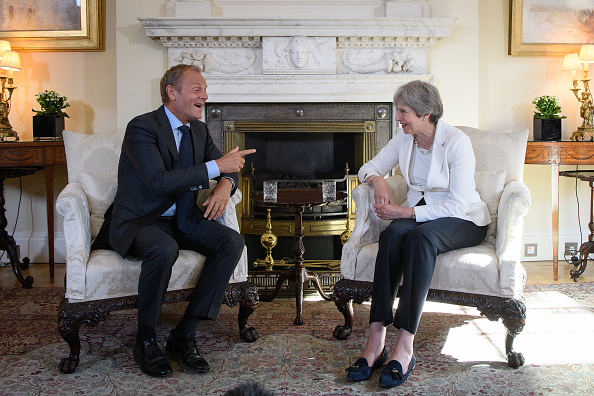As we near the close of 2018, the European Union is beset by a number of major challenges, both internal and external. Finalising Brexit, rising populist nationalism, a Euro-sceptic American President, and a revanchist Russia all threaten the European project in a multitude of ways. Yet the most existential threat to the future sustainability of the European Union is a problem entirely of its own making: the perceived democratic deficit. Those steeped in the details of EU law and political institutions will be quick to argue the so-called ‘democratic deficit’ in Europe is a myth, out of line with reality, and they would not be wrong. But perceptions of the democratic deficit remain persistent and the aloofness of senior EU leaders is at least in part to blame for that persistence.
Step to the fore, President of the European Council, Donald Tusk. In April of 2018, Tusk launched an Instagram page that has shown a deft touch for humanising a key EU role and bringing a sense of humour to a figure known for his stoic stare. To date, Tusk has built a respectable following just shy of 85,000 users. His first Instagram post, a shot of him with his grandsons, is personable and sets the tone for his account, which is surprisingly open, candid, and peppered with a deadpan sense of humour. In making himself more accessible – and via a medium more popular with young voters – Tusk has crafted a useful tool to get European citizens more engaged in the EU’s political process and institutions.
True, each of Tusk’s posts appear to be a professionally-shot, but it almost always features a component – in composition or caption – that is atypical of most politicians’ carefully crafted social media accounts. Tusk’s Instagram post from the June G7 summit showing his meeting with U.S. President Donald Trump is a perfect example. The photo focuses in on a close-up shot of a frowning Tusk staring at President Trump, with only the blurred back of the President’s head just about recognisable. In a refreshingly frank way, the photo captures the tension and awkwardness at the G7 table.
During the recent EU Summit in Salzburg – which ultimately saw EU leaders reject UK Prime Minister Theresa May’s proposal for Brexit – European Council President Donald Tusk emerged as an unlikely hero for many pro-Europeans.
Posting from his personal Instagram account, Tusk captioned a picture of himself with May in front of a plate of petit fours with “A piece of cake, perhaps?” The next image, which zoomed into the sweet treats, was captioned “Sorry, no cherries” – a nod to the EU’s position that the UK will not be allowed to cherry-pick the bits of membership it likes while throwing out those it does not. Was it the most diplomatic post in the history of Instagram? No. But did it show a sense of humour and authenticity? Yes. And that is the point.
The combination of that authenticity and a platform that is more popular with young people gets to the core of addressing that issue of aloofness from top EU leaders and may ultimately help chip away at the democratic deficit, if even in a small way. Young people make up almost 20 per cent of Europeans and, according to most reports, are the age group most likely to support the European project. However, less than one-third on them voted in the May 2014 European elections.
The question facing Tusk, the European Council, and indeed the European Union more broadly, is how to engage young (and sometimes disillusioned) Europeans. This is especially critical as the UK exits the Union. Studies suggest young people are ready to engage in two-way dialogue with European institutions, but only if dialogue takes place over social media.
Tusk and his team are right to use Instagram to appeal to younger audiences. In most EU countries, Instagram is the second most popular social media platform in terms of daily share of users’ time. Instagram is also much more adapted to young people’s current digital needs, favouring visuals over text and ephemeral over permanent content.
Through Instagram, Tusk can engage young Europeans by injecting subtle humour into the often stiff and unappealing world of politics. It’s clear the EU Council recognises that dialogue with EU leaders and officials is one thing, but getting young Europeans on-side is an entirely different task.
The power of Donald Tusk’s Instagram diplomacy in appealing to, and engaging, the youth of Europe should not be underestimated.
